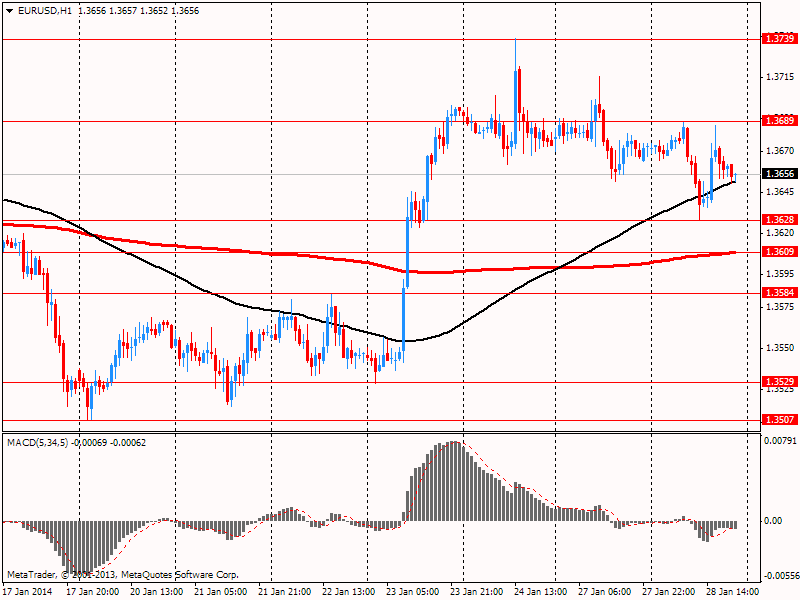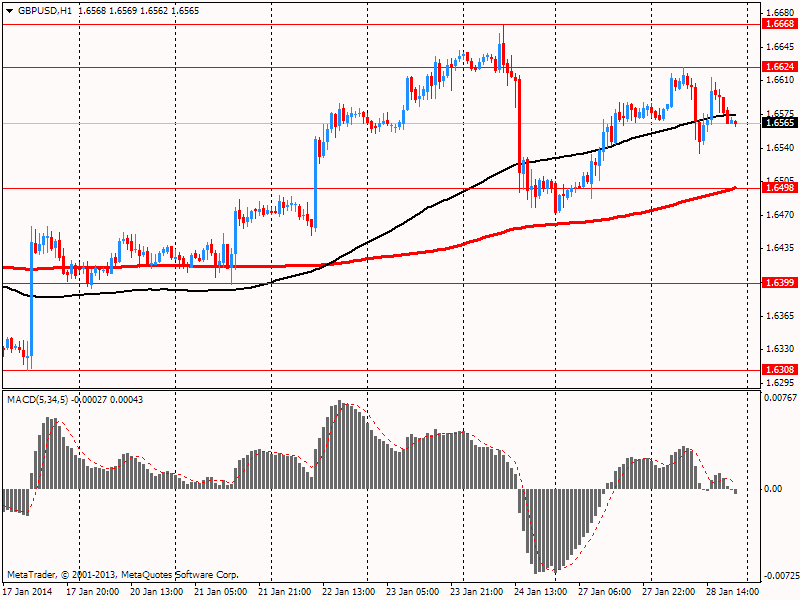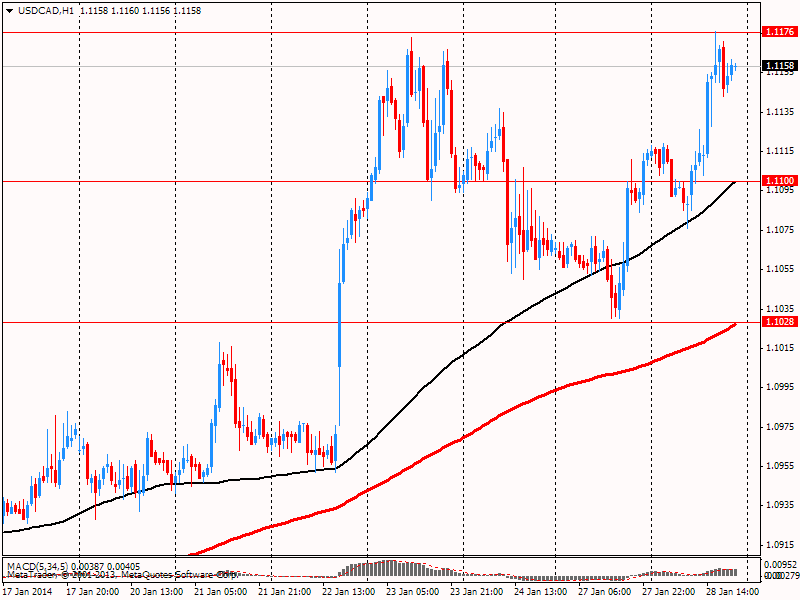- Analytics
- News and Tools
- Market News
- American focus: the Canadian dollar has fallen markedly against the U.S. dollar
American focus: the Canadian dollar has fallen markedly against the U.S. dollar
The dollar traded higher against the euro with , although some of the previously lost positions gained . Influenced the course of trading data on orders for durable goods , which caused the dollar to plummet , as well as consumer confidence , which helped regain some positions.
As it became known , new orders for durable goods fell 4.3% in December from November to $ 229.3 billion These are the data of the Ministry of Trade . This second drop in three months , and was marked the steepest decline since July. The decrease was due to a decline in demand for civilian aircraft , which is a volatile category. But even excluding the transportation sector , orders for durable goods fell by 1.6 %, showing the biggest drop since March. Economists had forecast an increase of 2 % of orders for durable goods in December. The data indicate that consumers and businesses are still spending cautiously , despite signs that the U.S. economy is gaining strength in recent months of 2013.
Another report showed that consumer confidence index from the Conference Board, which rebounded in December , increased again in January. The index is currently 80.7 ( 1985 = 100) compared to 77.5 in December. The current conditions index rose to 79.1 from 75.3 . The expectations index rose to 81.8 from 79.0 last month.
" The consumer confidence index rose in January for the second month in a row ," said Lynn Franco , director of economic indicators in The Conference Board. " Estimation by consumers of the situation continues to improve. As business conditions, and the same situation on the labor market are evaluated more favorably . Looking ahead six months , consumers expect the economy and their incomes improve, but they were somewhat mixed about the prospects for jobs. In general, there is a confidence that the economy is on track and growing expectations suggest that the economy can gain some momentum in the coming months. "
Pound returned to the level of opening of the session against the dollar, despite sharp fluctuations during the auction. Initially, the pressure on the currency had a report on Britain's GDP , which is not justified forecasts , but weak U.S. data ( on orders for durable goods ) helped to regain lost ground . However, another report by the USA ( potrebdoveriyu ) were much better than expected, which again put pressure on the pound and brought him back to the opening level .
As for the British report , it showed that the UK economy expanded in the fourth quarter , but the rate of expansion slowed slightly . Gross domestic product grew by 0.7 per cent compared with the previous quarter , when it grew by 0.8 percent. Economists had expected the economy to grow by 0.8 per cent . Issue increased by 0.5 percent in agriculture, 0.7 percent in manufacturing and 0.8 percent in services. However , construction output fell by 0.3 percent. On an annualized basis in the fourth quarter GDP grew by 2.8 percent. GDP is estimated to have increased by 1.9 percent in 2013 compared with 2012 . In the fourth quarter GDP was 1.3 percent below the peak in the first quarter of 2008. Since reaching a peak to a minimum of 2009 the economy contracted by 7.2 percent.
The Canadian dollar declined significantly against the U.S. dollar , reaching at this 4.5 -year low on expectations of further Fed folding and further commitment of the Bank of Canada's policy weak currency. Fed today begins 2 -day meeting . Expected to further minimize the quantitative easing program . Despite the weakness of the labor market , according to the consensus forecast is expected that the Central Bank will refrain from sharp folding , cutting 75 -billion program gradually , until the end of this year.
Meanwhile, we add that although the head of the Central Bank of Canada skid refrained from defining a target , he makes no secret of his desire to see the weak Canadian dollar. Both he and Prime Minister Stephen Harper stated that they would like to see growth in exports, which can stimulate the economy. A weaker Canadian dollar will help make the country's exports more attractive to U.S. imports and contribute to inflation in the domestic economy .
© 2000-2026. All rights reserved.
This site is managed by Teletrade D.J. LLC 2351 LLC 2022 (Euro House, Richmond Hill Road, Kingstown, VC0100, St. Vincent and the Grenadines).
The information on this website is for informational purposes only and does not constitute any investment advice.
The company does not serve or provide services to customers who are residents of the US, Canada, Iran, The Democratic People's Republic of Korea, Yemen and FATF blacklisted countries.
Making transactions on financial markets with marginal financial instruments opens up wide possibilities and allows investors who are willing to take risks to earn high profits, carrying a potentially high risk of losses at the same time. Therefore you should responsibly approach the issue of choosing the appropriate investment strategy, taking the available resources into account, before starting trading.
Use of the information: full or partial use of materials from this website must always be referenced to TeleTrade as the source of information. Use of the materials on the Internet must be accompanied by a hyperlink to teletrade.org. Automatic import of materials and information from this website is prohibited.
Please contact our PR department if you have any questions or need assistance at pr@teletrade.global.


















